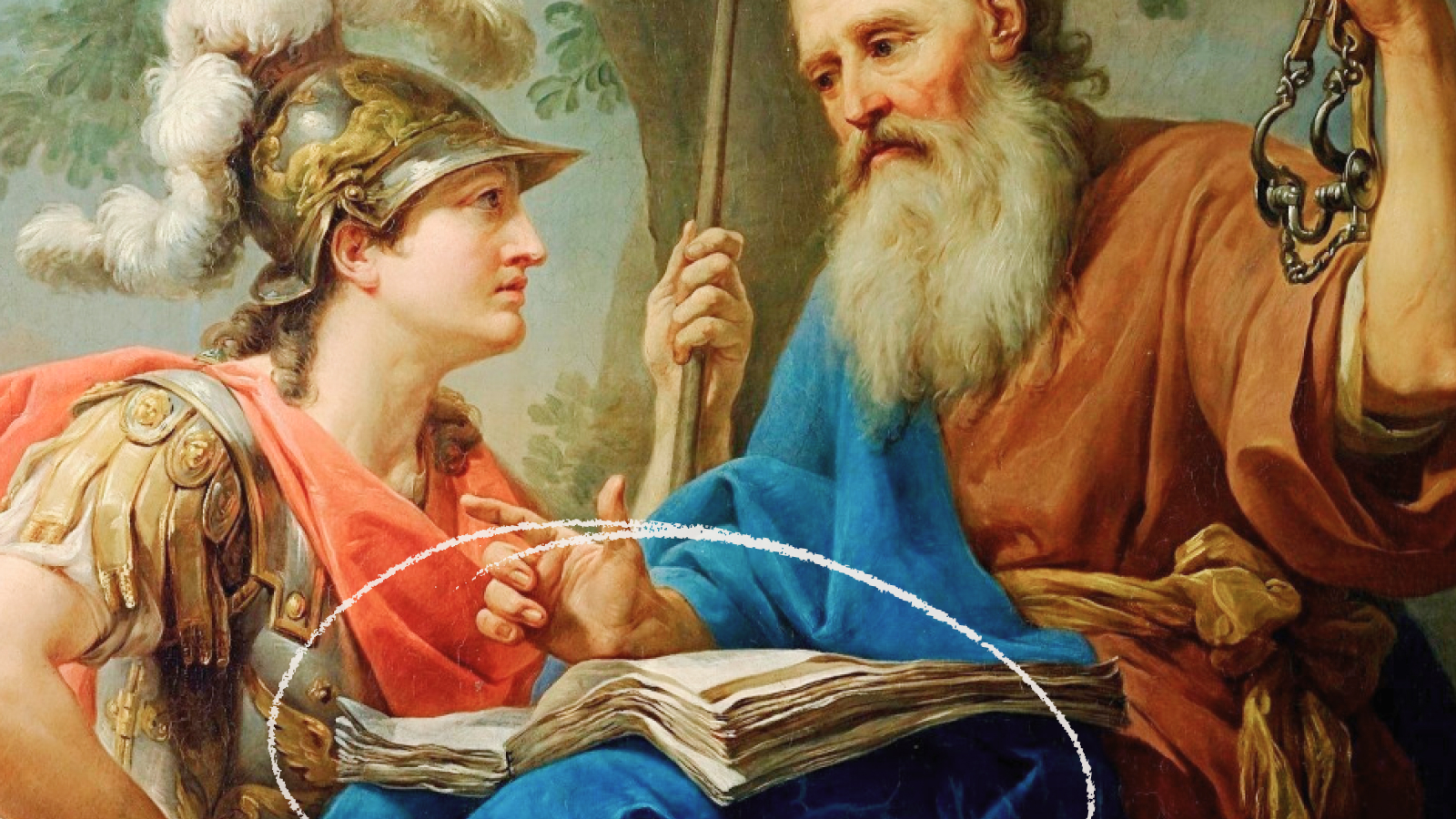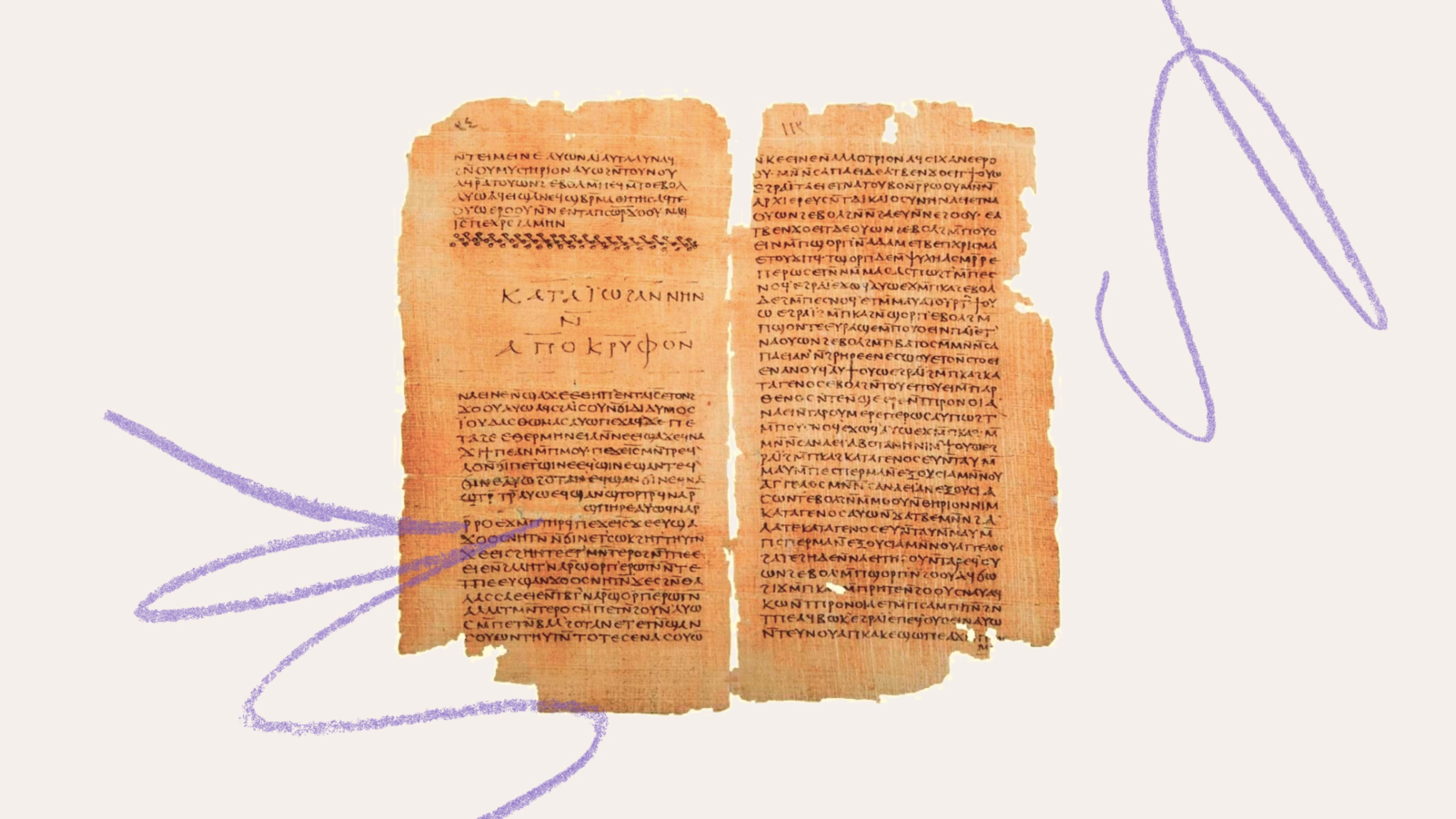Joan Scott is known internationally for writings that theorize gender as an analytic category. She is a leading figure in the emerging field of critical history. Her ground-breaking work has[…]
Sign up for Big Think on Substack
The most surprising and impactful new stories delivered to your inbox every week, for free.
Western attempts to ban Islamic religious garb, and Muslim attempts to censor Western religious satire may be separate issues. But neither is a good idea.
Question: Is the headscarf ban partly a reaction to perceived rnMuslim threats to free speech?
rn
rnJoan Wallach Scott: The groups who protest the Danish cartoons… rnwho protested the Danish cartoons, the threats… I think those are sort rnof terrible things, but I don’t think the vast majority of the rnpopulations we’re talking about and those who are affected by things rnlike headscarf laws are involved in that. If they are they’re pulled inrn by the sense of discrimination and objection they feel in the host rncountries in which they live, but more than that I don’t see how banningrn headscarves makes any difference in the reaction of politicized Islamicrn groups to something like the Danish cartoons. It seems to me that the rncure being offered doesn’t fit the problem that is being defined and thern cure is a kind of general Islam phobia that attaches to all Muslims andrn that affects the practices of all Muslims, so I think girls and rnheadscarves are benign. I really don’t think that that is the flag of rnIslamic terrorism or the cover for deeply felt terrorist inclinations. Irn do think for… There are issues of religious belief. There are issues rnof identification with a world movement that removes you from the kind rnof more objected ethnic racial inferiority you feel in the country that rnyou are, so that you can identify with something that is bigger than yourn and that feels more comfortable or gives you a kind of recognition thatrn you otherwise feel you’re not getting, so you know there are lots of rnissues involved in the choice to wear a headscarf, but I don’t think rnwearing a headscarf or having people not wear headscarves or not wear rnburqas has anything to do with addressing the problem of political rnaction, political censorship of things like the Danish cartoons.
rn
rnQuestion: Should our guiding principle in such clashes be rn“free expression above all”?
rn
rnJoan Wallach Scott: I mean I guess I’m you know I’m certainly forrn free expression. I think that… and I was the head of the Committee on rnAcademic Freedom in tenor at the American Association of University rnProfessors, so that was the hat I wore for a long time and I certainly rnthink free expression is what there should be. There are always tricky rncontexts and the one in which the Danish cartoon somehow seemed to be a rnblow, a horrible blow at religious belief and religious… You know if rnthe Danish cartoons had been swastikas, what would the response have rnbeen on the part of Jewish community? I mean maybe people wouldn’t havern threatened the lives of the cartoonists, but I think there would have rnbeen an outpouring of objection on the part of members of the Jewish rncommunity about this travesty that was allowed to be expressed even as rnfreedom of speech is something that is recognized and, you know, the rnNazi march in Skokie, Illinois in the 1970s or 80s, I mean civil rnlibertarians here said that march had to be allowed to take place, but rnso I think one can under… There was a certain kind of insensitivity rnthat was involved in the publication of the cartoons in a context in rnwhich this was a really volatile and explosive issue, but I think they rnshould have been allowed to be published. I do think though that the… rnAs I say I don’t think if they had been… I don’t think the editors of rnthe paper would have allowed the publication of similar cartoons in rnwhich anti-Semitism could be the accusation rather than attacks on rnMuslims.
rn
rn Question: Should the satirical “South Park” episode rnabout Islam have been censored?
rn
rnJoan Wallach Scott: No, I think that that… I think that was rnfine. I mean I think that… And I think people are looking to sort of… rn There was certainly threats and all of the rest of it, but I you know rnno, I don’t… I think that can be allowed. Again, I guess my test rnalways is if we’re as tolerant of what could be taken to be… rnpost-Holocaust, what are taken to be anti-Semitic gestures as rnanti-Muslim ones then you know I think yeah, why not allow these rncharacters to sort of play around and be satirical.
Recorded April 26th, 2010
rnInterviewed by Austin Allen
rn
rnJoan Wallach Scott: The groups who protest the Danish cartoons… rnwho protested the Danish cartoons, the threats… I think those are sort rnof terrible things, but I don’t think the vast majority of the rnpopulations we’re talking about and those who are affected by things rnlike headscarf laws are involved in that. If they are they’re pulled inrn by the sense of discrimination and objection they feel in the host rncountries in which they live, but more than that I don’t see how banningrn headscarves makes any difference in the reaction of politicized Islamicrn groups to something like the Danish cartoons. It seems to me that the rncure being offered doesn’t fit the problem that is being defined and thern cure is a kind of general Islam phobia that attaches to all Muslims andrn that affects the practices of all Muslims, so I think girls and rnheadscarves are benign. I really don’t think that that is the flag of rnIslamic terrorism or the cover for deeply felt terrorist inclinations. Irn do think for… There are issues of religious belief. There are issues rnof identification with a world movement that removes you from the kind rnof more objected ethnic racial inferiority you feel in the country that rnyou are, so that you can identify with something that is bigger than yourn and that feels more comfortable or gives you a kind of recognition thatrn you otherwise feel you’re not getting, so you know there are lots of rnissues involved in the choice to wear a headscarf, but I don’t think rnwearing a headscarf or having people not wear headscarves or not wear rnburqas has anything to do with addressing the problem of political rnaction, political censorship of things like the Danish cartoons.
rn
rnQuestion: Should our guiding principle in such clashes be rn“free expression above all”?
rn
rnJoan Wallach Scott: I mean I guess I’m you know I’m certainly forrn free expression. I think that… and I was the head of the Committee on rnAcademic Freedom in tenor at the American Association of University rnProfessors, so that was the hat I wore for a long time and I certainly rnthink free expression is what there should be. There are always tricky rncontexts and the one in which the Danish cartoon somehow seemed to be a rnblow, a horrible blow at religious belief and religious… You know if rnthe Danish cartoons had been swastikas, what would the response have rnbeen on the part of Jewish community? I mean maybe people wouldn’t havern threatened the lives of the cartoonists, but I think there would have rnbeen an outpouring of objection on the part of members of the Jewish rncommunity about this travesty that was allowed to be expressed even as rnfreedom of speech is something that is recognized and, you know, the rnNazi march in Skokie, Illinois in the 1970s or 80s, I mean civil rnlibertarians here said that march had to be allowed to take place, but rnso I think one can under… There was a certain kind of insensitivity rnthat was involved in the publication of the cartoons in a context in rnwhich this was a really volatile and explosive issue, but I think they rnshould have been allowed to be published. I do think though that the… rnAs I say I don’t think if they had been… I don’t think the editors of rnthe paper would have allowed the publication of similar cartoons in rnwhich anti-Semitism could be the accusation rather than attacks on rnMuslims.
rn
rn Question: Should the satirical “South Park” episode rnabout Islam have been censored?
rn
rnJoan Wallach Scott: No, I think that that… I think that was rnfine. I mean I think that… And I think people are looking to sort of… rn There was certainly threats and all of the rest of it, but I you know rnno, I don’t… I think that can be allowed. Again, I guess my test rnalways is if we’re as tolerant of what could be taken to be… rnpost-Holocaust, what are taken to be anti-Semitic gestures as rnanti-Muslim ones then you know I think yeah, why not allow these rncharacters to sort of play around and be satirical.
Recorded April 26th, 2010
rnInterviewed by Austin Allen
▸
7 min
—
with





